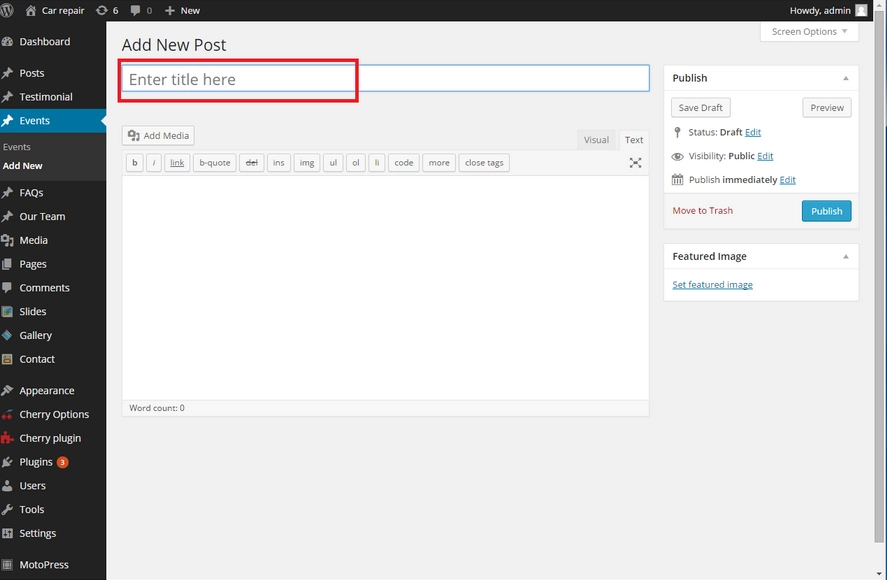Why Join Vocational Ausbildung Program in Germany for Bright Career?
Introduction to Vocational Ausbildung Program in Germany
Thinking about your future career prospects can be both exciting and overwhelming. With so many options to choose from, it’s important to find a path that not only aligns with your interests but also provides you with practical skills for success. If you’re considering pursuing higher education, then the Vocational Ausbildung Program in Germany might just be the perfect fit for you. This unique program offers a dynamic blend of theoretical knowledge and hands-on training, setting you up for a bright and prosperous career ahead. Let’s dive deeper into why joining this program could be a game-changer for your professional journey!
Benefits of Joining the Program
One of the key benefits of joining a Vocational Ausbildung Program in Germany is the practical hands-on experience it provides. Unlike traditional college education, where students spend most of their time in classrooms and lecture halls, vocational programs focus on real-world training. Students are given the opportunity to work directly with industry professionals and gain valuable skills that can be immediately applied in their chosen field.
Another advantage is the shorter duration of these programs compared to a traditional four-year degree. Most vocational programs can be completed within two to three years, allowing students to enter the workforce much sooner. This not only means less time spent studying but also quicker access to job opportunities and potential earnings.
Additionally, vocational programs often have strong connections with local businesses and industries. This means that students have access to a wide range of internships and apprenticeships, providing them with valuable networking opportunities and increasing their chances for future employment.
Furthermore, vocational programs tend to offer more specialized training tailored to specific industries or career paths. This targeted approach allows students to develop expertise in their chosen field from an early stage, making them highly sought after by employers upon graduation.
Joining a Vocational Ausbildung Program can also provide financial advantages over traditional college education. Tuition fees for these programs are generally lower than those for university degrees, reducing the burden of student debt.
Comparison with Traditional College Education
When it comes to choosing the right path for your education and future career, weighing the options is crucial. One option that often gets overlooked is vocational Ausbildung programs in Germany. These programs offer a unique alternative to traditional college education.
In terms of duration, vocational Ausbildung programs are typically shorter than a four-year college degree program. While a typical bachelor’s degree can take up to four years to complete, many vocational programs can be completed in two or three years. This means that you can enter the workforce sooner and start earning money faster.
Another advantage of vocational Ausbildung programs is their focus on practical skills and hands-on training. Unlike traditional college courses which may have more theoretical content, vocational programs provide direct industry-specific training that prepares students for real-world work environments. This gives graduates an edge when it comes to job prospects as they already possess the necessary skills employers are looking for.
The Application Process and Requirements
The application process for a Vocational Ausbildung Program in Germany may vary depending on the specific program and institution you choose. Generally, the first step is to research and find a program that aligns with your career interests. Once you have identified a program, you will need to gather the necessary documents.
Most programs require applicants to submit their high school diploma or equivalent qualifications, such as a completed apprenticeship or vocational training certificate. Additionally, you may be required to provide proof of proficiency in German language skills, as most programs are taught in German.
In some cases, entrance exams or interviews may be part of the application process. These assessments are designed to evaluate your aptitude and suitability for the program.
It’s important to note that there may also be specific requirements related to age restrictions or work experience prerequisites for certain programs. Therefore, it’s essential to carefully review each program’s admission criteria before applying.
Opportunities for International Students
International students have a world of possibilities awaiting them when they choose to join the Vocational Ausbildung Program in Germany. With its strong emphasis on practical training and hands-on experience, this program provides an excellent platform for international students to gain valuable skills and knowledge that can boost their careers.
One of the key opportunities for international students is the chance to immerse themselves in a new culture and language. Germany offers a rich cultural heritage and diverse communities, providing students with a unique learning experience both inside and outside the classroom. This exposure not only enhances their understanding of different cultures but also prepares them for global work environments.
Additionally, Germany’s strong economy presents abundant job prospects for graduates of vocational programs. The country has a high demand for skilled workers in various sectors such as engineering, healthcare, hospitality, IT, and more. This means that international students who successfully complete their vocational training are likely to find exciting career opportunities not just in Germany but also internationally.
Furthermore, many German companies actively recruit from vocational schools, including those with international backgrounds. These companies value the practical skills gained through vocational training and recognize the importance of diversity within their workforce. As such, international students have an advantage when it comes to securing employment after completing their studies.
Challenges and How to Overcome Them
Challenges are a natural part of any learning journey, and pursuing a vocational Ausbildung program in Germany is no exception. However, with the right mindset and strategies, these challenges can be overcome.
One common challenge that students may face during their vocational Ausbildung program is the language barrier. German language proficiency is often required for admission into these programs, and for international students, this can pose an additional hurdle. To overcome this challenge, it’s crucial to invest time and effort in improving your German language skills before applying or enrolling in the program. Taking language classes or finding language exchange partners can greatly help enhance your fluency.
Another challenge that may arise is adjusting to a new cultural environment. Moving to a different country can be overwhelming at first, but embracing the local culture and actively engaging with fellow classmates can make the transition smoother. Participating in extracurricular activities or joining student clubs are excellent ways to immerse yourself in the German culture while making new friends.
Conclusion
After exploring the various aspects of a vocational Ausbildung program in Germany, you may be wondering if it is the right choice for you. While the decision ultimately depends on your individual goals and preferences, there are several factors to consider.
If you are someone who prefers hands-on learning and wants to gain practical skills that directly relate to your chosen field, then a vocational Ausbildung program can offer immense value. The opportunity to work and learn simultaneously provides invaluable experience that can set you apart in today’s competitive job market.














Leave a Reply